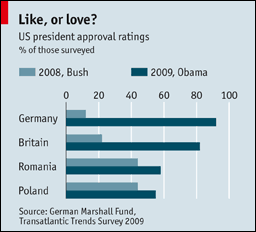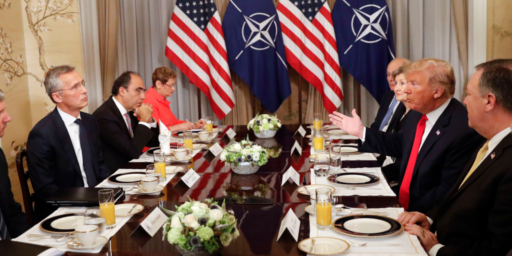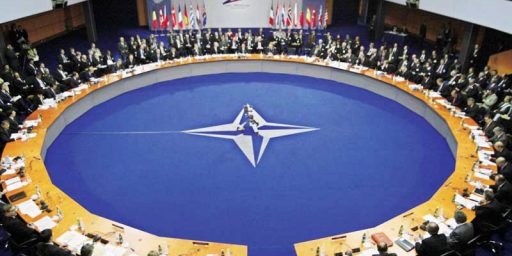Old Europe, New Europe
 Back in 2003, then-Defense Secretary Donald Rumsfeld famously noted that while “Old Europe” (particularly France and Germany) was hard to work with, America could count on “New Europe.” Fast forward to 2009 and we may have reversed polarity.
Back in 2003, then-Defense Secretary Donald Rumsfeld famously noted that while “Old Europe” (particularly France and Germany) was hard to work with, America could count on “New Europe.” Fast forward to 2009 and we may have reversed polarity.
My latest New Atlanticist essay, “Losing New Europe, Too?” explores this evolution, including why Western Europe is back in the fold and why Eastern Europe has every reason to be disappointed.
The eagerness of “New Europe” to side with the U.S. came from the combination of the cold shoulder they were receiving from their Western neighbors and the warm rhetoric from across the Atlantic. But it now seems obvious that the talk will not be backed with action at the cost of risking war with Russia, especially for those states in its “near abroad” that have not yet been admitted into the NATO club. That realization obviously and reasonably puts a damper on “New Europe’s” enthusiasm.
Relations with “Old Europe,” meanwhile, will return to what they have been for the postwar period: a mature engagement between peers that will ebb and flow as the situation warrants. Such a relationship can withstand sharp disagreements, angry words, and hurt feelings. Resentments and rifts will occasionally arise but they will be temporary. Our shared values and interests, however, are permanent.
Much more at the link.
Graphic via Economist.






I’m curious why you think the earlier downward cycle with “Old Europe” was anything but “ebb[ing] and flow[ing] as the situation warrant[ed].” And if you want to depend on the “mature” aspect of your definition of the relationship, the reason we can still be friends with each other after recent squabbles is precisely because the post-war relationship has always been a mature one.
It wasn’t. As I wrote even during the passion of that time, France and Germany simply had different interest calculations than the US, UK, and New Europe.
Right. Because it’s been between peers with longstanding modern political and economic systems. We had, for example, the Suez Crisis in the 1950s and managed to survive it just fine.
Then you confuse me by saying that “Old Europe…will return” to something that you also say they never left.
Sorry for being such a pedant.
Fair enough. For a while during the Bush Administration, it seemed to get personal, with relations with France in particular becoming rather childish on both sides. Obama ends that but, contrary to the expectations of many, it just means a return to normalcy rather than a big lovefest.